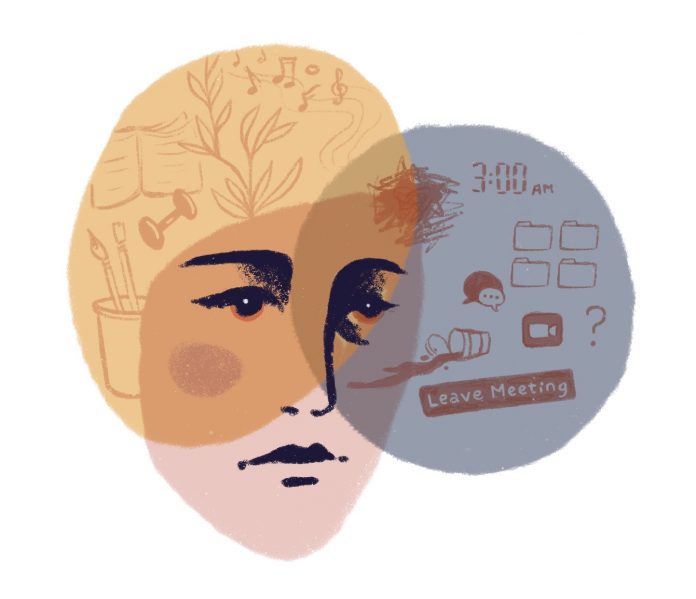Astin Hermann
Contributing Writer
While feeling powerless and stuck inside because of COVID-19 social distancing restrictions, remote learning, and living back at home, students turn to focusing on internal positives and adjusting their coping methods.
The American Psychological Association offers advice on getting the social support you need by staying virtually connected and focusing on what you can control. Technology plays a unique role in this pandemic. One can find events to participate in that were once in-person, do virtual counseling, and connect with others in a face-to-face style — if you have access that is, and if you are able to limit yourself to a “healthy” amount of screen time. This is challenging for students whose lectures, readings, recreational and mindfulness activities are all virtual, and spend the majority of their days in front of a screen.
How are students dealing with these unique challenges?
Of the 27 responses from UC Santa Barbara (UCSB) students to an online survey on their mental health during COVID-19, 25 students reported their mental health being negatively affected, with skyrocketing anxiety and isolation. The added responsibilities of taking care of other people in their household, declines in productivity, not recognizing themselves anymore, and the perceived backward developmental movement of being in their childhood homes again have all contributed to the struggle students are feeling academically and mentally.
“I am a member of a performance-based group on campus and making the switch to online has been incredibly difficult. This activity which used to bring almost all joy to my life has become far more stressful than joyful,” said a male third-year undergraduate.
A female second-year undergraduate commented on the drastic change in her personality because of not being able to socialize with friends: “I am extremely extroverted and not being able to hang out with people has made me extremely depressed and anxious, and also made me feel extremely detached from my own self.”
The word bubble below represents the main words used in student survey responses. The larger the word, the more times it was mentioned.
Before the pandemic, coping with mental health problems could be as simple as seeing a loved one, meeting up with friends, going to a concert, but many of these methods have been taken away with the social distancing requirements.
“Sometimes I feel like I’m waiting for an end that won’t arrive,” said a female second-year undergraduate.
From the 27 mental health responses, 10 included positivity in their response in addition to the negative effects on their mental health.
A female third-year undergraduate student stated, “I have to sometimes get out of the house, so I drive to a pretty spot in town and sit there, listening to music or writing poetry. I feel closer to myself and more in tune with my emotions than I’ve ever felt in my life.”
Students reported focusing on building their self-esteem, creating a stronger identity, trying new hobbies, adopting pets, doing yoga and mindfulness sessions, starting or re-entering therapy, and asynchronous classes allowing them to work at their own pace on bad mental health days.
When asking Dr. Janet Osimo, the assistant clinical director at UCSB’s Counseling & Psychological Services about the use of their virtual services during the pandemic, she said, “Our numbers are about the same or more, which we’re pleasantly surprised about. We expected a pretty huge drop-off, but that hasn’t been the case.”
“While feeling powerless and stuck inside because of COVID-19 social distancing restrictions, remote learning, and living back at home, students turn to focusing on internal positives and adjusting their coping methods.”
She added that many social pressures are off right now; therefore, some are feeling relieved, while some are left craving them.
There are positives the university can take from the responses.
We have seen the two extremes from in-person learning to remote learning, but hybridity caters more to individual needs. Some have not been learning well remotely and had to drop classes, while some are able to take on more.
“I’m usually a person who likes to spend a lot of time alone, so in some ways I am happy because I can work on my own projects more. In that sense, I feel more fulfilled. But alongside that comes more loneliness and hopelessness than I’ve ever felt in my life,” added a female third-year undergraduate.
When things are safe to return to in-person learning and therapy, it’s important to remember how beneficial the remoteness has been for some and the importance of having options.
So while positivity during the pandemic may not look like what it did before, it is very much a testament to the persistent spirit of the UCSB student body. As we try to emerge from this more self-reliant and in tune with our needs, the lessons we are learning from this pandemic may become quite a beneficial adaptation.











